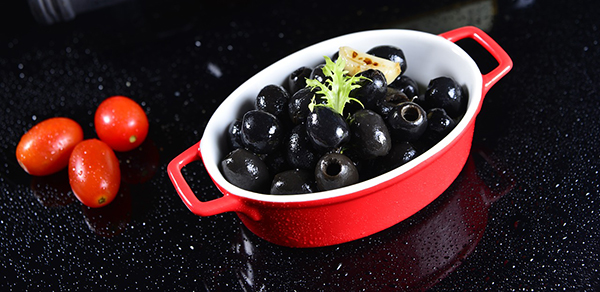Olives have always been a much lauded fruit. The ancient Greeks held the olives in such high esteem that it was almost sacred for them. The Mediterranean cuisine uses a lot of olives in its dishes, and with the advent if imperialism, the fruit spread to many parts the world. Today, almost all cuisines in the word use olives in some way or the other. The fruits themselves are used in pizzas, pastas, and a variety of Mediterranean dishes, and olive oil is considered one of the healthiest oils you can possibly consume. But pregnancy comes with its own set of health rules, which will probably make you doubtful of this faithful staple of your kitchen. In this article, we will look at the association between pregnancy and olives.
Yes, in moderation
The good news is, there is nothing stopping you from consuming olives and olive oil when you are pregnant. In fact, thanks to their many benefits, it is highly recommended that you consume some amounts of both of these during those nine months. However, over consumption of olives and olive oils have been linked to some complications, so the rule is never to indulge in it too much. But, as you probably already know, nothing should be consumed in immoderate quantities when you are pregnant.
Develops blood circulation
Olives provide a host of benefits to the pregnant woman. For instance, the presence of Vitamin K in olives help in ensuring that your blood retains its coagulating properties, which is extremely essential when you are giving birth, since there would be a considerable amount of bloodshed and it is important that your blood coagulates naturally and speedily. The effect of olives on your blood goes far beyond this, however; olives contain ample amounts of vitamin C, which makes them ideal additions to your diet to ensure the development of a healthy blood circulation system in your baby, and also for the maintenance of a healthy blood circulation in your system.
Develops and repairs tissue
The vitamin C present in olives not only helps in maintaining and developing blood circulation in you and the baby; it is also extremely important in developing the tissues in both you and the child, including, but not limited to, the growth of collagen, blood vessels, tendons, and the skin.
Increases immunity
Olives are also pretty rich in vitamins A and antioxidants. Vitamin A is responsible for developing the immune system and eyesight of the baby. It is especially beneficial for the mother since the immune system of the woman is already compromised by the pregnancy, and eating foods rich in vitamin A will help in protecting the mother from infections and illnesses. The presence of Vitamin E, which is an antioxidant, helps in fighting free radicals by acting as scavengers.
Essential nutrients
Olives also contain two very important nutrients for the baby: niacin and pantothenic acid. The pantothenic acid helps in the development of the blood cells in both the baby and the mother, which is extremely important since pregnant women are often susceptible to becoming anemic. The niacin, on the other hand, is responsible for producing hormones in the pregnant woman, which is essential for a healthy pregnancy. Adequate hormone production also helps in keeping mood swings under considerable control.
Might cause digestion issues
All said and done, however, you should still maintain some caution while eating olives and its byproducts during your pregnancy. The principal reason is that over consumption of this fruit can potentially lead to some digestive issues like constipation and diarrhea. You will already be facing those issues all through your pregnancy- those being a staple of the pregnant life- so you probably don’t want any more of those than your due share.
Also read: Can I eat grapes during pregnancy?
There are many ways of including olives in your diet. Add a few chopped fruits to your salad, or use generous helpings as toppings on your pizza to make the less guilty. You can also enjoy them sprinkled in your pastas and rice dishes. When you cook at home, try to substitute all other oils with olive oils, which you can also have drizzled on your salads. The bottom line is to be smart while including this in your diet. Use moderate portions, be it olives or olive oil. Stick to the virgin olive oil instead of the pomace version to get the most goodness out of it; if you can get the extra virgin variety, even better. It is best to speak to your doctor beforehand if you have an especial penchant for this Mediterranean fruit; if you feel any discomfort after consuming them, consult the doctor right away.

